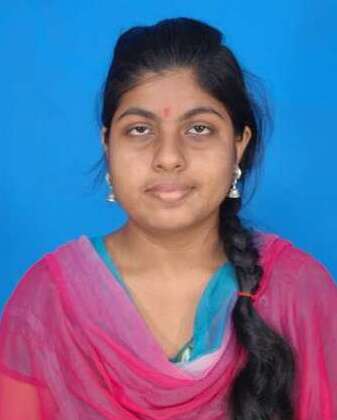Food & Nutrition Department
B.Sc. Courses
Menu
Menu
Department of Food & Nutrition
Year of Establishment: 2014
About The department
Good food and nutrition are vital to good health and wellbeing, and reduce the risk of disease. Healthy eating means choosing the right food and knowing how much to have.
This is an innovative interdisciplinary course which combines components from Diet Therapy and Counselling, Biochemistry, Human Physiology, Food Microbiology, Food Preservation, Public Health, Community Nutrition, Epidemiology, Sports Nutrition, Health and Nutrition Education, Food Fermentation.
Department Notice
No Food & Nutrition notices found.
This course is about the science behind nutrition which can improve the nutritional status of populations. The curriculum explores the role of therapeutic diets in the treatment of chronic illnesses and other nutritional disorders, highlighting the principles of the nutrition care process as applicable in a primary care setting. There is an opportunity to learn key nutrition assessment techniques and intervention strategies that will assist students in providing comprehensive health care to the patients.
The students receive basic theoretical and practical training in three major areas, viz. Public Health Nutrition, Dietetics & Food Science and Quality Control that will enable them to choose one of these as their specialized career in future.
Vision
A vision of food and nutrition course is a stated below…
- To empower learners with the knowledge and skills to make informed food choices, plan and prepare healthy meals, and promote nutrition awareness in their communities.
- To provide a comprehensive and interdisciplinary education on the science, culture, and politics of food and nutrition, and their implications for human and environmental health.
- To foster a critical and creative understanding of the complex relationships between food and nutrition, and the social, economic, and environmental factors that shape them.
- To inspire learners to explore the diversity and richness of food and nutrition traditions, practices, and innovations around the world, and to appreciate their cultural and ethical dimensions.
Mission
A mission of food and nutrition course is given below…
- To provide quality education and training in food and nutrition sciences, and to prepare learners for professional and academic excellence, lifelong learning, and social responsibility.
- To offer a holistic and interdisciplinary curriculum that integrates theory and practice of food and nutrition, and that fosters critical thinking, problem-solving, and communication skills among learners.
- To develop learners' competence and confidence in applying food and nutrition knowledge and skills to various settings and contexts, such as health care, food industry, research, education, and community development.
- To promote a culture of inquiry and innovation in food and nutrition, and to support learners' engagement in research, extension, and outreach activities that contribute to the advancement of the discipline and the society.
Department Rules
- Attendance as per the University norm is mandatory for appearing in the final examination.
- Appearing in Class-Test, Annual Test Examination is mandatory.
- Students must engage themselves in various departmental activities
- Students must help to maintain a healthy academic atmosphere and the sanctity of the department
- Students are requested to stitch off the lights and fans when leaving the department
Highligths
- It covers topics such as nutritional assessment, diet planning, food product development, health communication, clinical nutrition, nutrition education and behavior modification
- It requires 10+2 in science stream with majors in physics, chemistry and biology as the eligibility criteria.
- It offers various career options such as fitness trainer, food research analyst, food services manager, food technologist, nutritionist, dietician, teacher, lecturer, etc
- It has an average tuition fee of INR 2,000 to 18,000 per month and an average salary of INR 2,00,000 to 4,00,000 per annum.
Course Structure
Curriculum Plan
Academic Calendar
Additional Details
- Internship Reports on Human Pathology
- The Integrated Child Development Services Report (ICDS)
- Community Service - "Health Checks Up Camp"
- Advance & slow Learner 2020-2023
- Mentor mentee 2019-2024
- Internship Report
- Food And Nutrion Class Diary
- Advance And Slow Learners 2022-23
- Mentor Mentee 2022-23
- Student Centric 2022-23
- Student Centric 2021-24
- Teacher used ICT
- Food and Nutrition news letter

Name
Head Of the Department
Welcome to the Department of Food & Nutrition
Food and nutrition are essential aspects of human health and well-being. A bachelor course in food science and nutrition can equip you with the knowledge and skills to understand the relationship between food, nutrition, and health, and to apply this knowledge in various fields such as food production, food safety, food quality, food service, public health, dietetics, and research.
Some of the reasons why you should study food science and nutrition are:
- You can learn about the science behind food, such as its composition, properties, processing, preservation, and analysis.
- You can learn about the nutrition behind food, such as its functions, requirements, metabolism, interactions, and effects on health and disease.
- You can learn how to assess the nutritional status and needs of individuals and populations, and how to plan, implement, and evaluate nutrition interventions and programs.
- You can learn how to develop, test, and improve new food products, technologies, and systems that meet the needs and preferences of consumers and stakeholders.
- You can learn how to ensure the safety, quality, and sustainability of food throughout the food supply chain, from farm to fork.
- You can learn how to communicate and educate others about food and nutrition issues, and how to advocate for evidence-based policies and practices.
- You can pursue a variety of career opportunities in the food and nutrition sector, such as food scientist, food technologist, food inspector, food researcher, food analyst, food consultant, food educator, food manager, nutritionist, dietitian, nutrition educator, nutrition consultant, nutrition researcher, nutrition manager, and more.
A bachelor course in food science and nutrition can also provide you with a strong foundation for further studies and research in related fields, such as food engineering, food biotechnology, food microbiology, food chemistry, food physics, food law, food policy, food security, food ethics, food culture, food sociology, food psychology, food anthropology, food economics, food marketing, food journalism, food art, food design, and more.
If you are interested in food and nutrition, and want to make a positive impact on the health and well-being of people and the planet, then a bachelor course in food science and nutrition might be the right choice for you.
Programs Offered & Intake Capacity : 40
Study Materials
- 3rd Sem Therapeutic Diet
- 1st Sem DC2 Salt
- Nutritional Importance Of Foods (1st Sem)
- Clinical assessment and sign of nutrient deficiency disorders
- Dc 7. Paper 13: Therapeutic Diet – I (Semester III)
- Isolation of Microorganisms
- DC 11. Paper 21: Food Contamination
- Prevention of Food Adulteration (PFA) Act 1954
- DC 11. Paper 21: Food Microbiology
Department Faculties
Invitee lecturer || Dept. of Food & Nutrition
M.sc in physiology || SACT-I
M.sc in Food & nutrition || Guest
Department Gallery
Invalid shortcode






